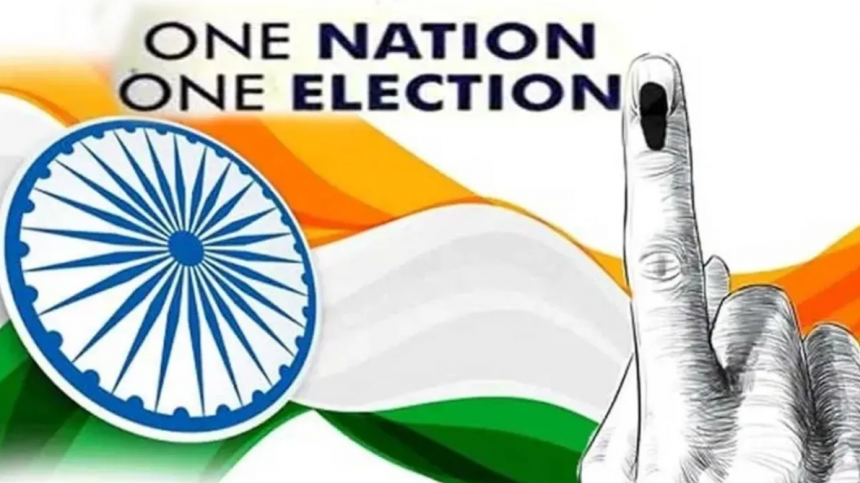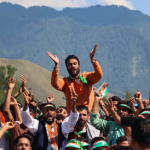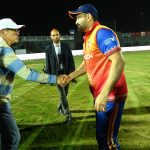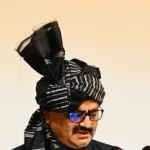The proposal for “One Nation, One Election” (ONOE) has sparked robust debate on India’s democratic processes. Advocates argue that synchronized elections for both the Lok Sabha and all state legislative assemblies could streamline governance, significantly cut election-related expenses, and mitigate policy paralysis caused by frequent elections. Opponents, however, raise questions regarding its potential impact on federalism and regional political representation. This article examines ONOE, its proposed benefits, the concerns it raises, relevant data, and constitutional and legislative frameworks essential for implementation.
The Rationale for ONOE: Economic and Administrative Efficiency
ONOE proponents highlight the economic and administrative strains of frequent elections. The High-Level Committee (HLC) report (March 2024) cites significant administrative costs associated with holding elections separately across India’s states and union territories, with each Lok Sabha election alone estimated to cost over INR 4,500 crores. The cumulative expense of staggered elections across states compounds this figure.
Repeated imposition of the Model Code of Conduct (MCC) creates policy delays, with the HLC estimating that 70-75% of governmental development projects are impacted due to periodic MCC restrictions. These delays often hold back economic growth and postpone the rollout of welfare schemes, a major concern shared by both citizens and business entities such as the Confederation of Indian Industry (CII) and the Federation of Indian Chambers of Commerce and Industry (FICCI). By synchronizing elections, ONOE promises to minimize the disruptions that currently affect governance cycles across different states and at the national level.
Case Laws and Constitutional Implications
Implementing ONOE requires constitutional amendments, particularly to Articles 83, 85, 172, and 174, which govern the terms of both the Lok Sabha and state assemblies. Additionally, Article 356, which allows for President’s Rule, would need modifications to ensure continuity in legislative terms without premature dissolutions. The Supreme Court’s landmark judgment in S.R. Bommai v. Union of India (1994) limited the use of Article 356 to prevent politically motivated state assembly dissolutions, underlining the need for checks on central authority over state governments.
The HLC has proposed a phased approach to ONOE. First, it suggests creating an “appointed date” for simultaneous elections, aligning the tenure of the Lok Sabha with state legislative assemblies. This could involve constitutional amendments to ensure that all assemblies’ terms align with the Lok Sabha’s five-year term.
Reducing Voter and Administrative Fatigue
ONOE proponents argue that frequent elections lead to voter fatigue, which may contribute to lower voter turnout over time. For instance, a state like Maharashtra witnesses elections at varying intervals for its state legislature, local bodies, and national representatives, which requires voters to engage with multiple electoral cycles in quick succession. By synchronizing these elections, voter turnout is expected to improve as people would vote for their state and national representatives only once every five years.
Administrative and logistical efficiencies would also be enhanced through ONOE. For example, the 2019 Lok Sabha elections, combined with state assembly elections in Andhra Pradesh and Odisha, required an estimated 10 million personnel, from polling officers to security forces, and around 1.2 million Electronic Voting Machines (EVMs). These logistical efforts could be halved if elections were synchronized, freeing resources and personnel for other administrative duties during non-election years.
Addressing Concerns of Federalism and Regional Representation
A central critique of ONOE is its potential impact on federalism. Some political parties and scholars argue that synchronized elections may limit the political autonomy of states and create a strong centralizing influence. States often hold elections at different times, allowing voters to independently judge the performance of state governments. Parties like the Indian National Congress and the Communist Party of India (Marxist) argue that simultaneous elections might dilute local issues and lead to dominance by national parties. There is also a concern that ONOE could push India toward a de facto presidential system, with the Prime Minister exerting more influence over states.
Critics further argue that ONOE could favor larger, national parties in state elections. By aligning with Lok Sabha polls, regional parties might find it difficult to gain traction amid the extensive campaigning resources of national parties, especially in rural areas. The HLC report addressed this by noting that voter discernment should not be underestimated, suggesting that voters could still distinguish between national and state issues and vote accordingly.
Global Experiences: Models of Synchronized Elections
Several countries, including Brazil and South Africa, have adopted synchronized election systems to reduce costs and ensure stable governance. In Brazil, the Federal and State elections align every four years, offering a potential model for India to consider. However, India’s unique federal structure and socio-political diversity require a tailored approach. The HLC noted that while these models are informative, India’s electoral framework must ensure both national cohesion and respect for state autonomy.
Proposed Framework and Implementation
The HLC suggests a phased implementation model. Initially, the focus would be on aligning Lok Sabha and state assembly elections, while local body elections could be integrated in subsequent phases. An “appointed date” could serve as the baseline for aligning electoral cycles, allowing the Election Commission of India (ECI) and state election commissions to conduct elections simultaneously from that point onwards. This two-phased approach would minimize disruptions to existing governance structures while promoting administrative preparedness.
To address potential challenges, the HLC recommends the creation of a standardized single electoral roll and synchronized voter identification system across all levels of government, potentially through amendments to Article 325. These systems would streamline voter registration and reduce duplication, enhancing electoral transparency and efficiency.
Logistical and Legal Challenges: Building a Supportive Framework
A synchronized election system would necessitate extensive coordination between the ECI, state election commissions, and the judiciary. The ECI has outlined logistical requirements for ONOE, including an estimated 20 million Electronic Voting Machines (EVMs) and Voter Verifiable Paper Audit Trails (VVPATs), increased security forces, and extended polling days to accommodate India’s vast electorate. The financial implications are substantial; however, in the long run, the savings from fewer separate elections are expected to offset these initial costs.
Additionally, the HLC proposes amendments to ensure continuity in state governance, such as allowing for fixed-term legislatures with limited provisions for early dissolution. The HLC has recommended consultation with state governments and constitutional experts to ensure that these changes respect federal principles while advancing ONOE’s objectives.
Conclusion: Evaluating ONOE’s Transformative Potential
ONOE proposes a significant reform with the potential to enhance governance, reduce costs, and streamline India’s electoral process. While the economic efficiencies and reduction in election-related disruptions are promising, ONOE also raises critical questions regarding its impact on federalism, local representation, and voter engagement. Given the complexity of India’s political landscape, ONOE must strike a delicate balance between efficiency and autonomy.
With adequate constitutional safeguards, open dialogue among stakeholders, and a well-structured implementation plan, ONOE could redefine India’s democratic process, making it more cohesive and efficient. As India moves forward with this proposal, it remains essential to maintain a federal balance, ensuring that the spirit of democracy is not only preserved but strengthened for future generations.
(The Author is Advocate, Supreme Court of India. Feedback: [email protected])








